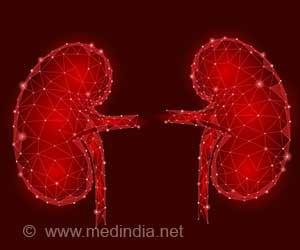FAQs on Nitric Oxide: The Molecule with a Multitude of Missions in Your Body
1. Where is Nitric Oxide produced in the body?Nitric oxide is primarily produced by endothelial cells lining the blood vessels, as well as by various immune cells, neurons, and other tissues throughout the body.
2. Does Nitric Oxide cause vasodilation or vasoconstriction?
Nitric oxide primarily causes vasodilation by relaxing the smooth muscle cells in the blood vessel walls, leading to increased blood flow.
3. How to increase Nitric Oxide naturally?
Consuming foods rich in nitrates, such as leafy greens, beets, and garlic, can naturally increase nitric oxide production in the body. Regular exercise and adequate sleep also support NO synthesis.
4. What are the symptoms of nitric oxide deficiency?
Symptoms of nitric oxide deficiency may include fatigue, exercise intolerance, erectile dysfunction, cognitive decline, and cardiovascular problems.
5. What increases nitric oxide in the body?
Factors that can increase nitric oxide levels in the body include dietary nitrates, physical activity, adequate sleep, and certain supplements such as L-arginine and L-citrulline.
6. Is it OK to take nitric oxide supplements daily?
While nitric oxide boosting supplementation can have benefits for certain individuals, it's essential to consult with a healthcare professional before starting any new supplement regimen, especially if you have underlying health conditions or are taking medications.
7. Can nitric oxide supplements improve athletic performance?
Nitric oxide supplements are often marketed to enhance exercise performance by promoting vasodilation and improving blood flow to muscles, potentially increasing endurance and reducing fatigue.
8. How long does it take for nitric oxide supplements to work?
The time it takes for nitric oxide supplements to take effect can vary depending on factors such as the individual's metabolism, the specific supplement used, and whether it's taken on an empty stomach or with food. Some people may notice effects within hours, while others may require longer-term supplementation to experience benefits.
9. Are there any natural ways to boost nitric oxide levels besides supplements?
In addition to consuming nitric oxide-boosting supplements, lifestyle factors such as regular exercise, maintaining a healthy diet rich in nitrate-containing foods, managing stress levels, and getting adequate sleep can all support nitric oxide production in the body.
10. Can nitric oxide supplements help with erectile dysfunction?
Nitric oxide plays a crucial role in erectile function by promoting vasodilation in the penile arteries, allowing increased blood flow and facilitating erections. Some studies suggest that nitric oxide supplements, particularly those containing ingredients like L-arginine or L-citrulline, may help improve symptoms of erectile dysfunction in certain individuals.
11. Are there any risks associated with nitric oxide supplementation?
While nitric oxide supplements are generally considered safe for most people when taken as directed, excessive intake may cause side effects such as low blood pressure, headaches, gastrointestinal discomfort, and interactions with certain medications. It's important to follow dosing recommendations and consult with a healthcare professional if you have any concerns.
12. Can nitric oxide supplements help lower blood pressure?
Nitric oxide supplements may help lower blood pressure by promoting vasodilation and improving blood flow. However, individuals with existing low blood pressure or those taking medication for hypertension should exercise caution and consult with a healthcare provider before starting supplementation.
13. Are there any foods that can decrease nitric oxide levels?
While certain foods can promote nitric oxide production, there isn't strong evidence to suggest that specific foods can directly decrease nitric oxide levels in the body. However, consuming a diet high in processed foods, trans fats, and excessive sodium may negatively impact cardiovascular health and endothelial function, which could indirectly affect nitric oxide production.
14. Can nitric oxide supplementation help with muscle recovery?
Nitric oxide supplements may support muscle recovery by increasing blood flow to muscles, delivering oxygen and nutrients, and removing metabolic waste products more efficiently. Some athletes and fitness enthusiasts use nitric oxide supplements to potentially reduce muscle soreness and improve recovery time after intense exercise.
15. Are there any age-related changes in nitric oxide production?
Nitric oxide production may decline with age due to factors such as decreased activity of nitric oxide synthase enzymes and impaired endothelial function. This decline in nitric oxide availability may contribute to age-related conditions such as hypertension, cardiovascular disease, and cognitive decline.
16. Can nitric oxide supplementation improve cognitive function?
Some research suggests that nitric oxide may play a role in cognitive function by regulating cerebral blood flow and neurotransmitter release. While more studies are needed to fully understand the relationship between nitric oxide and cognitive health, some people may consider nitric oxide supplements as part of a broader approach to supporting brain health and cognitive function.









